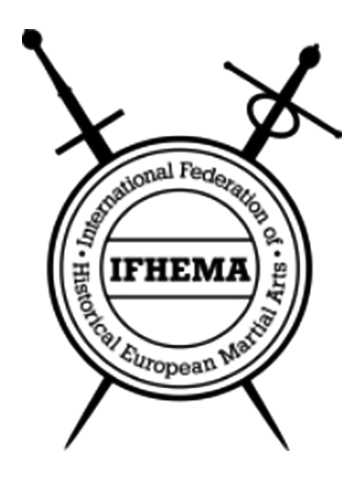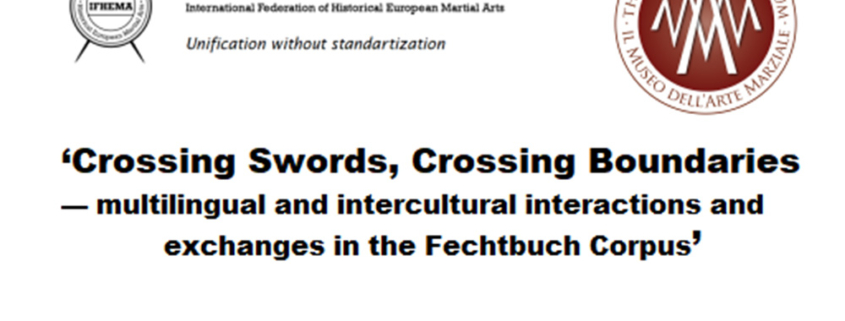‘Crossing Swords, Crossing Boundaries — multilingual and intercultural interactions and exchanges in the Fechtbuch Corpus’
- Second Call for Contributions
Extended deadline: September 15th, 2022 !!
On the occasion of the International Federation of Historical European Martial Arts’s ninth General Assembly, and to celebrate the cooperation agreement signed between the Museum of Martial Arts (MAM) and IFHEMA, a symposium is organised in Brescia, Italy, 3-4 December 2022. The collections of the MAM constitute the largest single private collection of HEMA-related source-material in the world, and the goal of the cooperation is to render these collections more accessible to both the HEMA and the academic community.
The Symposium will be held at Brescia, December 3-4th, 2022, and will take place on the site of the museum.
The corpus of texts known as Fight Books spans at least five centuries (XIV-XVIII) and deals with the art of individual combat in all its intricacies and manifestations as practiced in Europe during the given period. Assuming that the readership of these texts consists primarily of people practicing fighting themselves, and since fighting is practiced everywhere and in all layers of society, this corpus is characterized by its potential to cross boundaries. This essential feature is manifest on at least three levels: 1) even when dedicated to specific social strata, the corpus of Fight Books seems to permeate different social classes; 2) the phenomena of translation, linguistic borrowing and intertextual referencing are a typical feature of the corpus; 3) Especially in the Renaissance the overlap between different ‘arts’ and ‘sciences’ in both sources and practitioners is striking, and testifies to the changing relation between ‘art’ and ‘science’ in general over that period. Our corpus is a valuable but still underestimated witness to that cultural transformation process.
In a nutshell, stressing the intellectual richness and the cultural pluriformity of the Fight Book corpus will shed new light on what can be considered as “European cultural heritage”.
Based on this observation, the symposium aims at stressing the linguistic and intercultural interactions and exchanges within the corpus. It therefore focuses on multilingual sources, contemporary translations, commentaries and re-interpretations, as well as adaptations developed to counter, integrate or disseminate a given fighting system or master.
Topics may include
- multilingual sources
- translations and cultural adaptations
- counter systems in a different cultural/linguistic context
- educational strategies
- cultural shifts related to social mobility
- interdisciplinarity between arts and the idea of the “uomo universale”
- …
Proposals should include a title, an abstract (200 words max.) and a brief biografical note, and send to [email protected] before September, 15th, 2022.
Contributions in different European languages are welcomed. Contributors are expected to provide an English translation of their abstracts, and to ensure the linguistic accessibility of their contribution for their target audience.
Presentations will be videorecorded and made available afterwards. Publication of accepted contributions on different platforms will be arranged. Updates on this follow when available.
The event welcomes contributions by members of academic community, as well as by independent researchers and HEMA practitioners.
For informall inquiries, contact the Curators:
Karin Verelst ([email protected])
Roberto Gotti ([email protected])
Scientific Committee Organising Committee
Karin Verelst Roberto Gotti Filipe Martins
Myriam Vogelaar Hélène Leblanc Roger Norling
Daniel Jacquet Manuel Valle Ortiz Jacopo Penso
Olivier Dupuis An Smets Moreno Dei Ricci
Dierk Hagedorn Roger Norling Laura Boschetti


Trackbacks & Pingbacks
[…] how much does clomid cost with insurance […]
[…] 25 mg sildenafil […]
Comments are closed.